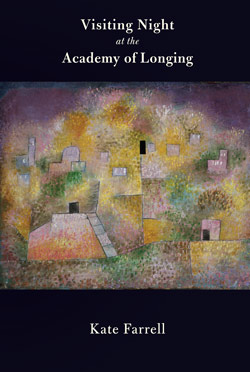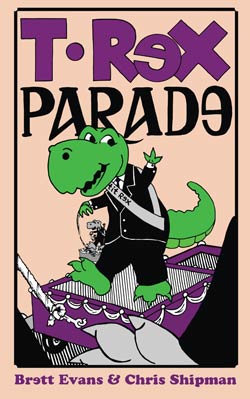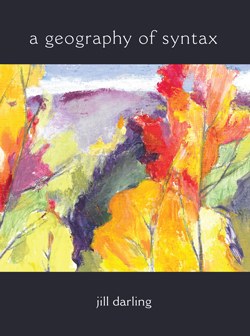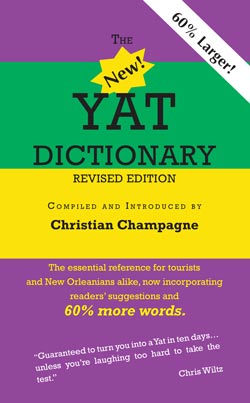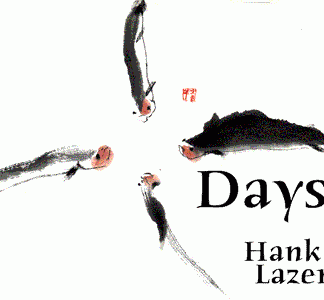Description
Kate Farrell
ISBN 978-1-935084-61-4
116 pages: $16.00
January, 2016
Kate Farrell’s lucid and engaging collection treats us to a trek through “the cosmos behind the forehead.” Farrell’s metaphysical quest begins in earnest with a childhood plan to run away with her sister to an elusive blue forest, moves on to an island where bodies are optional, an afterlife reading where T. S. Eliot recites his revised Four Quartets, and a project to “catch and train / the birds to catch and train us.” The dream-like “academy” of the title poem could stand for the book itself, its curriculum of loss and longing, a lens for our own. In the wake of her young husband’s suicide, Farrell wonders whether Keats’ “truth of imagination” can tell her children “why life is worth living.” These poems suggest it can. Indeed, the “yen to get at the otherworldly” yields a collection that amounts to a “unified theory of love, death and poetry,” swapping “old / North stars for new” while remaining “faithful,” in Dickinson’s dictum, “to mystery.”
The poetry of Kate Farrell is astonishing, new and fresh. Farrell is known for her amazing anthologies, and in this collection the selections are rich: rich and various as a fine anthology’s. But even more impressive is the history within: a life rescued from the merely personal by poetry as mature and cascading as a summer arbor. In many ways, Farrell has the excellent strangeness of Miró and Klee. Her dream poems become fabulously real, while everyday reality is replenished by a lushly eclectic metaphysics. Her humor is a perfect new perspective. I might add that this volume is one of the most complete presentations I have seen in years. If anyone wants poetry without cant, rhythms that seem never to stop, a wise politics of the imagination that takes on the largest questions…. Well, you might look here. Forgoing Miró’s tactic of burning the canvas, Farrell’s poetry fits heaven and earth back together with an enlightened daring all its own.
–David Shapiro, author of New and Selected Poems (1965–2006)
What could be more thrilling than the change-your-life seriousness of the true poem? Maybe only the I-see-through-myself playfulness of the true poem? Kate Farrell’s new book Visiting Night at the Academy of Longing dazzles with rigor and wild wit. The voice can be visceral, driven past tears to amazement: “Six years to the day after my husband’s suicide, my mother / nailed the house windows shut and drove to a hillside in western / Oklahoma to watch a spaceship land.” But this isn’t bleak territory; there’s an intuition of transcendence. Farrell’s poems are ultimately visits to the interior terra incognita Rilke indicates in the phrase “we who don’t know our feelings’ shape, but only that which forms them from outside.” Visiting Night at the Academy of Longing is an encounter, a journey, an illumination.
–D. Nurkse, author of A Night in Brooklyn
With deceptively brilliant simplicity and friendliness, Kate Farrell strides directly into areas long declared off limits for serious poets, and sets up camp there. The poems she brings back are boldly philosophical yet unencumbered by any dogma save one: she is true to the sense of mystery at the heart of life and all things in it. To read her poetry is to witness that mystery brought to light with an ease, candor, and power that are rare in any time, but especially in ours.
–Ptolemy Tompkin, author of The Modern Book of the Dead
Whether deployed in deft free verse or fluent prose poetry, Farrell’s confiding style carries with equal ease references to Rilke or to multistory parking lots. She inhabits a recognizable contemporary world but often beholds it like the blind man who said, after his sight was restored by Jesus, “I see men as trees, walking.” And with this notable debut collection, she initiates us poem by poem into what she calls “the enormity of consciousness.”
–Philip Fried, author of Interrogating Water
I can’t think of another poet writing today who writes more beautifully and more deeply about beauty, about longing, about life, about probability and possibility even as our lives go on and go in the unpredictable and sometimes difficult ways they will, than Kate Farrell. She will invoke for the reader, evoke for the reader, remind the reader, of her influences, but I see no reason to name those names. Kate Farrell writes like Kate Farrell. Let’s remember that name and think how lucky we are we have these poems and can.
—Mark Statman, author of That Train Again and A Map of the Winds

